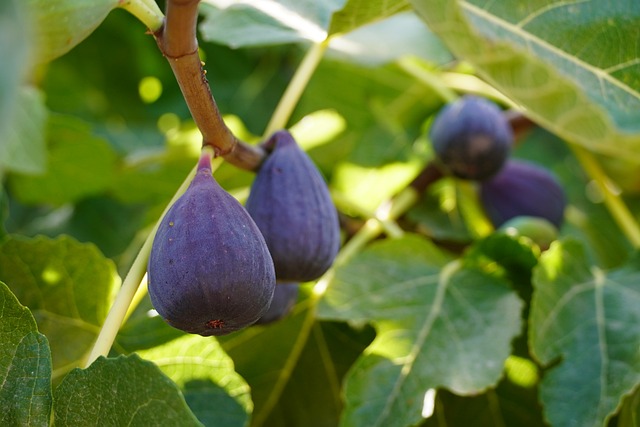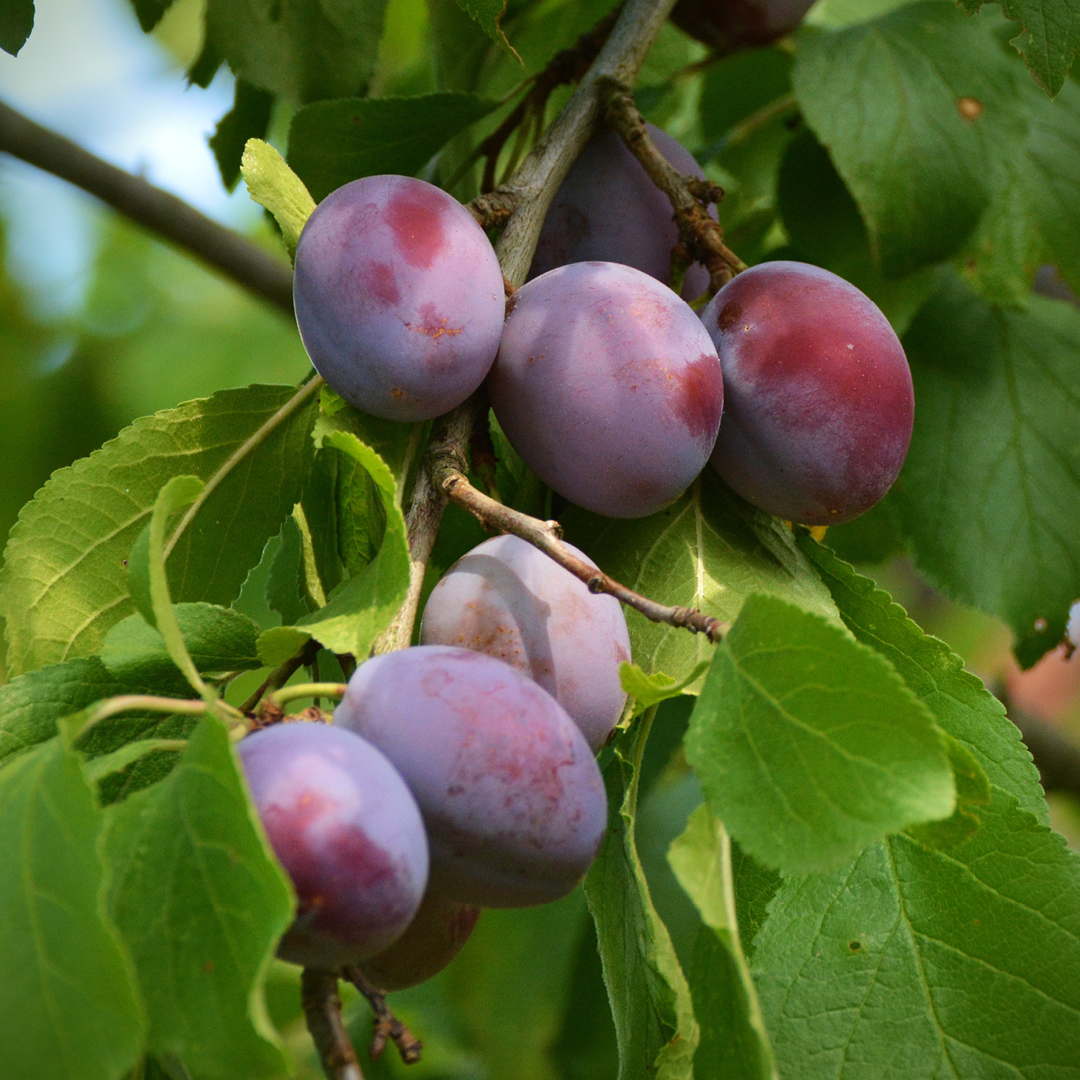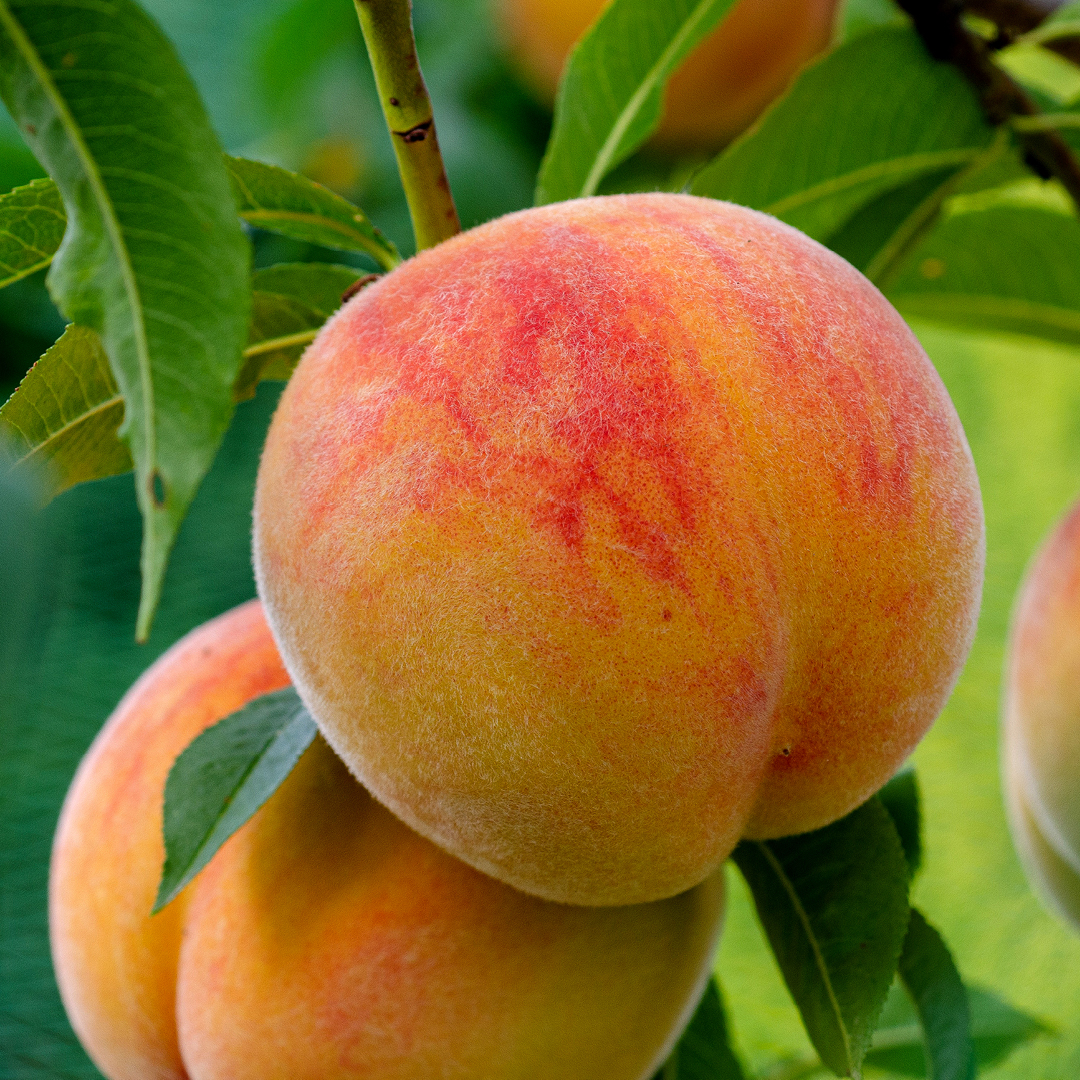Deciduous fruit trees can be a delicious addition to your Tucson landscape, bringing beauty and tastiness to the yard. Not all fruit trees will grow well in the region’s challenging Sonoran Desert climate, however, and it is important to choose your trees wisely and offer them the proper care for the most productive harvests.
About Deciduous Fruit Trees
While many people believe fruit trees require the rich soil, seasonal variations, and more temperate climate conditions of northern regions to succeed, a surprisingly wide variety of these fruits can be successfully grown in Tucson.
- Each requires a certain number of Chill Hours. These are the total number of hours between 32°F and 45°F that occur between November 1st and February 15th. On average the metro Tucson valley receives about 300-350 chill hours. Most of the varieties we over are below 400 hours for this reason. However, we do offer some higher chill hour varieties for our customers that live in colder areas.
- All of these plants have the same general care. They require at least 6 hours of sun a day and moderate to ample water while they have leaves (spring – fall), especially when they are setting fruits! When they are dormant in the winter, they require much less water (every 7 days for plants their first winter and every 10-14 once established).
- They should be fed regularly, once they have put on new leaves in spring, with a balanced organic fertilizer such as Happy Frog Fruit and Flower or Down to Earth All Purpose.
- Most of our fruit trees (excluding figs and pomegranates) are on a semi-dwarf root stock and will mature between 8’-15’. Any of these trees can be held at the desired height with proper pruning. We also carry some genetic, or natural, dwarf peach and nectarine trees that grow to 5’ tall.
- Most of our varieties are self-fruitful. Meaning they do not require a pollinator in order to produce fruit. However, if a second variety was planted a larger crop would be produced. We do have a few trees that do require a pollinator. In those cases, the tag will list acceptable varieties to use.
- Varieties can be early, mid or late harvesting. When planting multiple trees it is advantageous to plant successively ripening varieties for continuous fruit production.
Growing Deciduous Fruit Trees in the Desert
Depending on the soil type, moisture, and care, many deciduous fruit trees do well in Tucson, making them a wonderful addition to any productive landscape. Top choices include:
- Apples – There are several apple varieties that perform very well in Tucson including red, yellow and green skinned types. Most will ripen sometime in June or July and the others around October. The Annas apple is a great choice for first time growers.
- Apricots – These early-flowering stone fruits do best in full sun, and their dense canopy can provide abundant shade, making them a great choice for Tucson yards. They tend to be alternate bearing, meaning they will produce a heavy crop one year and a lighter one in others. But don’t be detoured, you can discourage alternate bearing in fruit trees by reducing the excessive fruit set in one year to encourage better production next year. For Apricots thin the fruit when it is about 1/3 it’s mature size and leave one fruit every six inches on each branch. The Katy Apricot is a very popular variety.
- Figs – These trees native range spans from Turkey through to Northwestern India so it’s no wonder it’s such an easy plant to grow. There are many varieties available with skin colors ranging from green to purple but they all have delicious, rich, sweet fleshed fruits. One bonus of growing a fig is that most produce two crops each year. They typically have a small crop in July and a larger one in September. The Black Mission Fig is the industry standard and is a heavy producer.
- Peaches – Nothing beats a juicy ripe peach and they are the most popular fruit tree we sell. We carry a variety of yellow and white peaches as well as some dwarf peaches, which are great for containers.
- Plums – Plums come in a variety of sizes, colors, and tastes. We carry many varieties of Asian plums, which are like the plums you buy in the store. We also carry a few European plums which are more tart and popular for making jams and preserves.
- Pomegranates – They have a native range similar to the Fig and are also very easy to grow in Tucson. There are several varieties available, each with a different balance of sweet and tart flavor. Some varieties, like Wonderful, actually produce better quality fruit in hotter climates.
Still trying to figure it out? Check with us; we can help you determine exactly which types of stone fruits are likely to be most productive in your yard. By understanding the individual needs of fruit trees, you can provide the very best care to these delicious trees and reap a bountiful harvest of your favorites, even in the middle of the Arizona desert!




